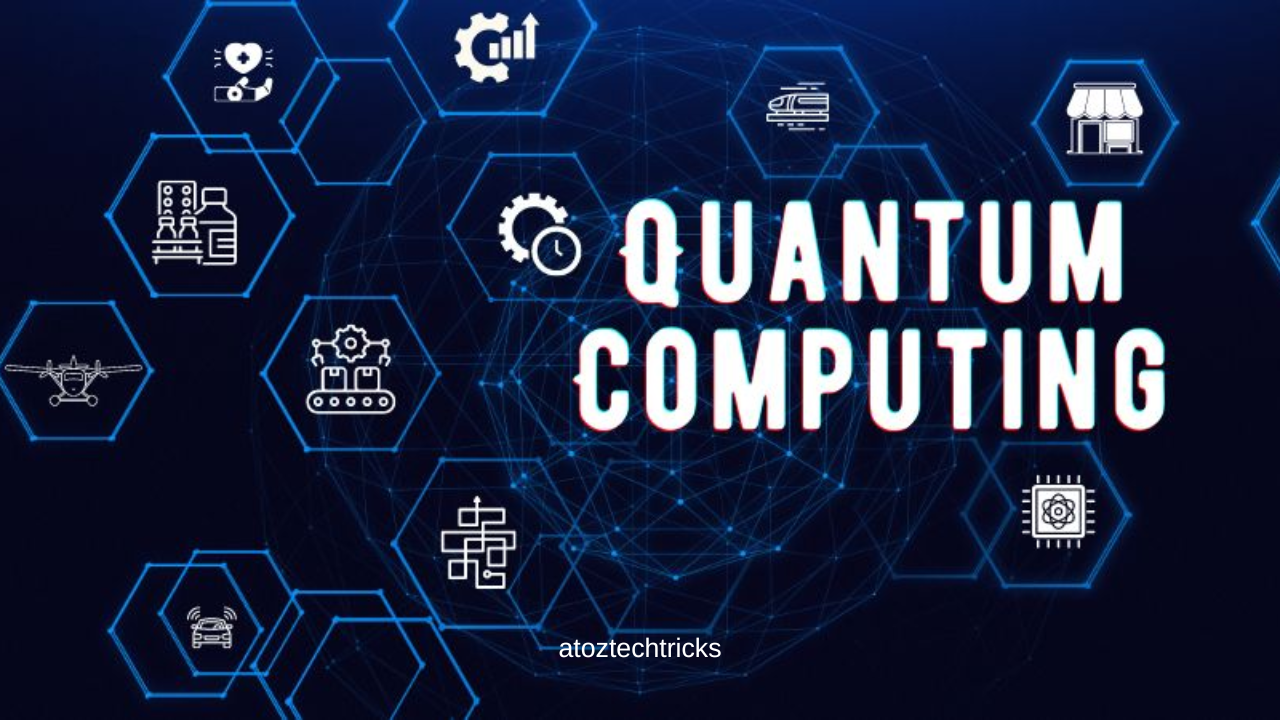Applications of Blockchain Beyond Cryptocurrency: Transforming Industries and Driving Innovation
Blockchain technology is most famously associated with cryptocurrencies like Bitcoin and Ethereum. However, its potential extends far beyond digital currencies. This decentralized, secure, and transparent ledger technology is revolutionizing various industries by enhancing transparency, security, and efficiency. This article explores the diverse applications of blockchain technology beyond cryptocurrency, highlighting its impact on sectors such as supply chain management, healthcare, finance, voting systems, and more.
1. Supply Chain Management
Enhanced Transparency and Traceability
One of the most promising applications of blockchain technology is in supply chain management. Traditional supply chains often suffer from inefficiencies and lack of transparency. Blockchain addresses these issues by providing a decentralized ledger that records every transaction in the supply chain, from the origin of raw materials to the final product delivery.
For instance, companies like IBM and Walmart have been using blockchain to track the provenance of food products. By recording every step of the food’s journey on a blockchain, stakeholders can quickly trace the source of contamination during food recalls, thereby reducing the time and cost associated with such incidents. This level of transparency also helps consumers verify the authenticity of products, enhancing trust and safety.
Streamlined Processes and Reduced Fraud
Blockchain’s immutability and transparency can also significantly reduce fraud in supply chains. By recording each transaction on a tamper-proof ledger, it becomes nearly impossible for any party to alter or falsify records without detection. This is particularly beneficial in industries such as pharmaceuticals and luxury goods, where counterfeit products can have severe consequences.
The Potential for Blockchain in Improving Supply Chain Management
2. Healthcare
Secure and Interoperable Health Records
In healthcare, managing patient records and data is a complex task due to privacy concerns, interoperability issues, and the need for secure data sharing. Blockchain technology can address these challenges by providing a secure and decentralized platform for managing electronic health records (EHRs).
With blockchain, patients can have control over their health data and be granted access to healthcare providers as needed. This ensures that patient information is securely stored and only accessible to authorized individuals. Furthermore, blockchain’s ability to integrate with various systems can help in creating interoperable health records, reducing errors and improving patient care.
Drug Traceability and Clinical Trials
Blockchain can also enhance the traceability of drugs and ensure the integrity of clinical trials. By recording the entire lifecycle of a drug on a blockchain, from manufacturing to distribution, stakeholders can ensure that the drug is genuine and has not been tampered with. Additionally, blockchain can provide an immutable record of clinical trial data, ensuring transparency and reducing the risk of data manipulation.
3. Financial Services
Cross-Border Payments and Remittances
Blockchain technology is transforming the financial services industry by making cross-border payments faster, cheaper, and more secure. Traditional international transactions often involve multiple intermediaries, which can result in high fees and delays. Blockchain eliminates the need for intermediaries by enabling peer-to-peer transactions through a decentralized ledger.
Companies like Ripple are leveraging blockchain to facilitate cross-border payments, reducing transaction times from days to seconds and lowering fees significantly. This is especially beneficial for remittances, where individuals sending money across borders can experience high costs and delays.
Smart Contracts and Automated Transactions
Smart contracts, which are self-executing contracts with the terms of the agreement directly written into code, are another innovative application of blockchain in the financial sector. These contracts automatically execute and enforce the terms of an agreement when predefined conditions are met.
For example, in real estate transactions, smart contracts can automate the transfer of property ownership once payment is received, reducing the need for intermediaries and minimizing the risk of fraud. Similarly, in insurance, smart contracts can automatically process claims and trigger payouts based on predefined criteria, streamlining the claims process.
4. Voting Systems
Secure and Transparent Elections
Blockchain has the potential to revolutionize voting systems by providing a secure, transparent, and tamper-proof platform for elections. Traditional voting systems often face challenges such as fraud, manipulation, and lack of transparency. Blockchain addresses these issues by offering a decentralized ledger that records each vote in a secure and immutable manner.
For instance, the Estonian government has implemented blockchain technology in its e-residency and voting systems, allowing citizens to cast their votes securely online. Blockchain ensures that each vote is recorded and counted accurately, reducing the risk of tampering and increasing voter confidence in the electoral process.
5. Intellectual Property and Digital Rights Management
Protection of Intellectual Property
Blockchain technology can also play a crucial role in protecting intellectual property (IP) and managing digital rights. By recording IP rights and ownership on a blockchain, creators can establish clear and immutable records of their work. This helps in preventing unauthorized use and ensuring that creators receive appropriate compensation for their work.
For example, platforms like Ujo Music use blockchain to manage music rights and royalties, enabling artists to track the usage of their work and receive fair payments. Similarly, blockchain can be used to verify the authenticity of digital art and other creative works, reducing the risk of counterfeiting and fraud.
6. Real Estate
Streamlined Property Transactions
The real estate industry can benefit significantly from blockchain technology by streamlining property transactions and reducing administrative overhead. Blockchain can provide a secure and transparent platform for recording property ownership, facilitating transfers, and managing leases.
By recording property transactions on a blockchain, all parties involved can access a single, immutable record of ownership and transaction history. This reduces the need for extensive paperwork, minimizes the risk of fraud, and accelerates the process of buying or selling property.
Tokenization of Real Estate Assets
Blockchain also enables the tokenization of real estate assets, allowing properties to be represented as digital tokens on a blockchain. This can make real estate investments more accessible and liquid by enabling fractional ownership and trading of property tokens. Investors can buy and sell tokens representing a share of a property, making it easier to invest in real estate without needing substantial capital.
Government Regulations and Policies Surrounding Blockchain: A Comprehensive Overview
7. Energy Sector
Decentralized Energy Trading
In the energy sector, blockchain technology can facilitate decentralized energy trading and improve the efficiency of energy markets. By using blockchain, individuals and businesses can trade energy directly with each other, bypassing traditional energy providers and reducing costs.
For example, platforms like Power Ledger use blockchain to enable peer-to-peer energy trading, allowing users to buy and sell excess solar energy within their communities. This creates a more efficient and transparent energy market, promoting the adoption of renewable energy sources and reducing reliance on centralized energy providers.
Improved Grid Management
Blockchain can also enhance grid management by providing a decentralized and transparent platform for monitoring and managing energy consumption. By recording data on a blockchain, grid operators can gain real-time insights into energy usage and make more informed decisions about energy distribution and grid stability.
8. Education
Verification of Credentials and Achievements
In the education sector, blockchain technology can be used to verify academic credentials and achievements, reducing the risk of fraud and simplifying the process of credential verification. By recording educational qualifications and certifications on a blockchain, educational institutions and employers can quickly and securely verify the authenticity of credentials.
Platforms like MIT Media Lab have explored the use of blockchain for issuing digital diplomas and certificates, allowing graduates to have a secure and verifiable record of their academic achievements. This can streamline the hiring process and reduce the administrative burden on educational institutions.
Lifelong Learning and Skill Tracking
Blockchain can also support lifelong learning and skill tracking by providing a secure and transparent platform for recording and verifying educational achievements and skills. Individuals can maintain a digital record of their learning experiences, certifications, and skills, making it easier to demonstrate their qualifications to potential employers or educational institutions.
9. Charity and Nonprofits
Transparent Donations and Fund Management
In the charity and nonprofit sector, blockchain technology can enhance transparency and accountability in donation and fund management. By recording donations and fund transfers on a blockchain, organizations can provide donors with a clear and immutable record of how their contributions are used.
For example, platforms like BitGive use blockchain to track donations and ensure that funds are allocated as intended. This level of transparency can increase donor trust and encourage more people to contribute to charitable causes.
Combatting Fraud and Corruption
Blockchain can also help combat fraud and corruption in the nonprofit sector by providing a tamper-proof record of financial transactions. This can reduce the risk of misappropriation of funds and ensure that donations are used for their intended purpose.
The Rise of Virtual and Augmented Reality: Transforming Experiences in the Digital Age
10. Legal Industry
Smart Contracts for Legal Agreements
The legal industry can benefit from blockchain technology through the use of smart contracts for automating and enforcing legal agreements. Smart contracts can be used to automate various legal processes, such as contract execution, compliance verification, and dispute resolution.
By using blockchain for smart contracts, legal agreements can be executed automatically when predefined conditions are met, reducing the need for intermediaries and minimizing the risk of disputes. This can lead to more efficient and cost-effective legal processes.
Proof of Authenticity and Chain of Custody
Blockchain can also be used to establish proof of authenticity and chain of custody for legal documents and evidence. By recording documents and evidence on a blockchain, legal professionals can ensure that they have not been altered or tampered with, providing a secure and transparent record of their authenticity.
Blockchain technology is a transformative force with applications extending far beyond cryptocurrency. From enhancing supply chain transparency and securing healthcare records to revolutionizing financial services and improving voting systems, blockchain offers innovative solutions to a wide range of challenges across various industries.

As blockchain technology continues to evolve, its potential applications are likely to expand further, driving innovation and creating new opportunities for businesses and individuals alike. By leveraging the unique features of blockchain—decentralization, transparency, and immutability—organizations can unlock new efficiencies, enhance security, and foster trust in their operations. The future of blockchain is bright, and its impact will be felt across all aspects of society, reshaping industries and driving progress in the years to come.




Post Comment